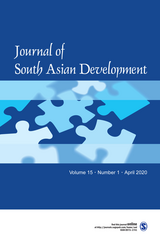
Women’s political representation and educational attainments: a district-level analysis in India
Burchi, Francesco / Karan SinghExternal Publications (2020)
in: Journal of South Asian Development 15(1), 7-33
DOI: https://doi.org/10.1177/0973174120913722
Volltext/Document
This paper has three major objectives: (1) to analyse whether the gender of politicians in India is relevant to the educational achievements of the residents of the districts in which they were elected; (2) to test whether politicians are more sensitive to the needs of the people of same gender and (3) to explore the potential channels through which the above relationships operate. By applying econometric techniques to a dataset obtained by merging individual with district-level political data, we concluded that an increase by 10 percentage points in women’s political representation produces an increase by 6 percentage points in the probability of children completing primary school. We then found gender-differentiated results: women’s political representation affects significantly more girls’ than boys’ education. This relationship works partly through the improvement of women’s access to educational programmes like the Mid-Day Meal scheme, while an increase in school infrastructures does not appear to be an important mediating factor. While an in-depth understanding of the pathways through which women’s representation in politics impacts on children’s education is hindered by data constraints, our findings seem to point to the importance of the ‘role model’ effect.

